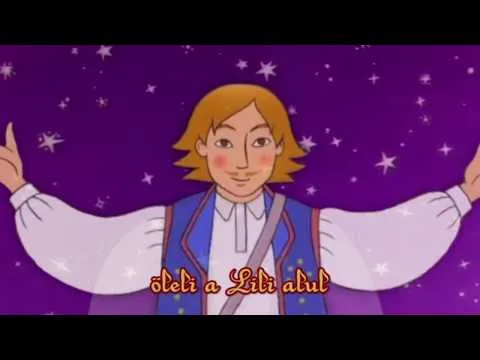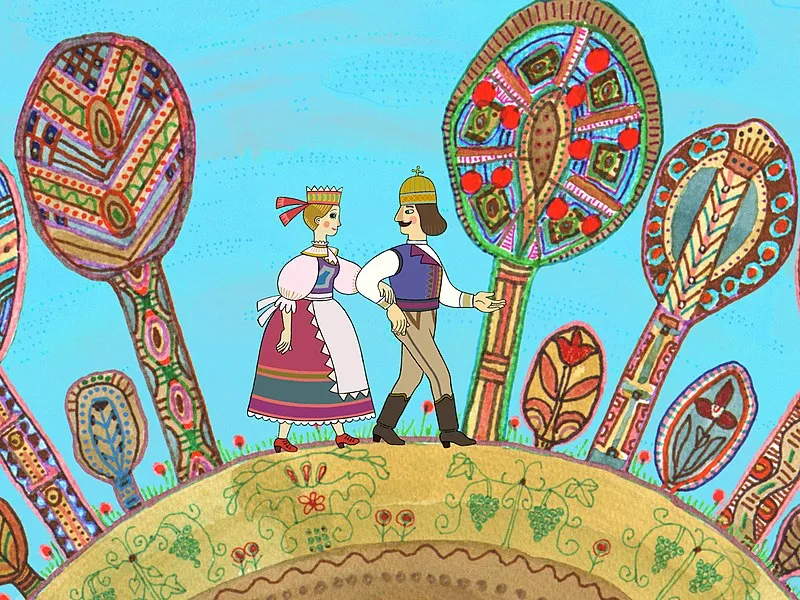For today's post in my Monday Music collection I want to present the song Kontár Dal by the Hungarian band Kárpátia. Though the group has become famous for its nationalistic rock music, today I just want to focus on this one little song, mostly because of its interesting lyrics. After all, I consider it an amazing example for wordsmithing, and also the incredible versatility of my native language, which is capable of things that would be unheard of in any of the other languages I speak.
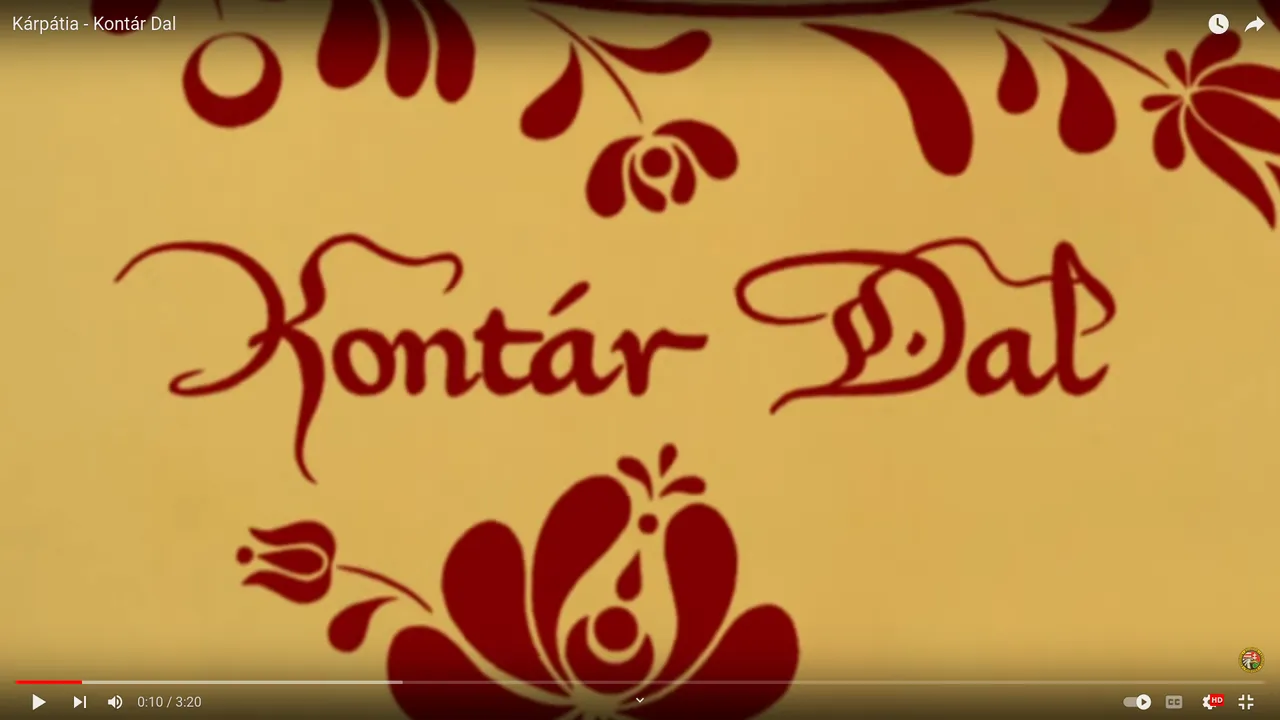
Coherent Sentences With Only One Consonant!
Quite frankly, when I first heard to this song, I found it completely overwhelming. It sounded Hungarian for sure, but was there a meaning behind these seemingly random words? I had to go back and pay close attention to each verse, before I realized the admittedly coherent meaning behind them. (This by itself is already a pretty weird thing to say about my first language!) The reason for this will be obvious, even to those who don't speak Hungarian: along with any of our 14 vowels, there is only one consonant in each verse. (Try that in any other language!) Amazingly, not only did they manage to form complete sentences in this way, they even combined them into humorous little stories, though admittedly a bit limited, still sufficient for a simple verse. The first one did this with the T sound, and the subsequent ones with N, D, S and finally with L. But check it out for yourselves. Here's the video:
So What's the Meaning in English?
Even though there are numerous automatic translators out there, I thought I should provide a translation into English, if only to show the kind of (more or less complex) sentences that Hungarian is capable of forming with only one single consonant. Obviously they made use of lots of proper names of people and places, but otherwise I could not find any grammatical errors or other short cuts that would compromise the language. Oh yeah, and I can imagine that you'd be burning to find out what these verses are about. The title Kontár Dal, by the way, means something like amateur, layman, or unprofessional song.
Here is the first verese:
The Slovak from Tata (village) broke through his roof. It is gaping here and there. Here and there it's gaping, the Slovak was bitten by lice. Root, root, root (of the problem) is the roof in Tata (village).
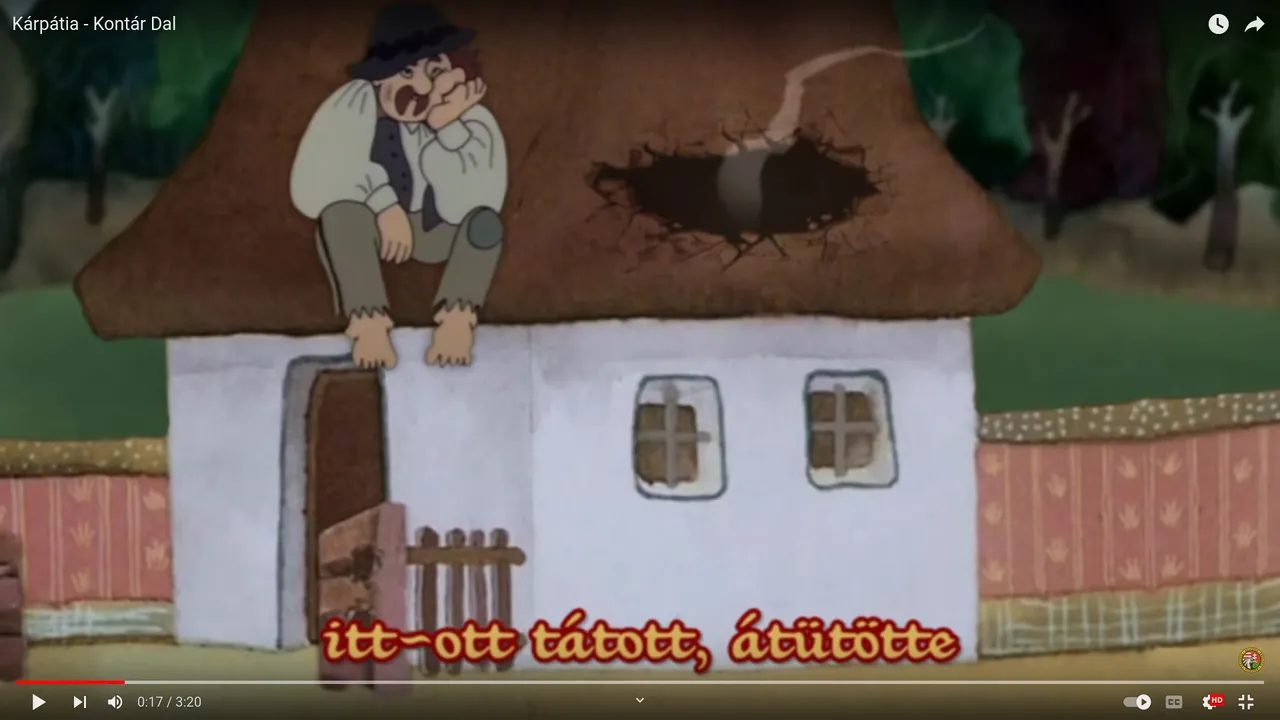
Granted, this does sound a bit forced, probably the weakest out of all the verses. So let me move on to the next one:
Auntie Anna from Nána (village) would like to drink from here and eat from there. She'd like to drink from there and eat from here. How could auntie Anna not gain weight? Woman, woman, woman, may she not get tired of eating.
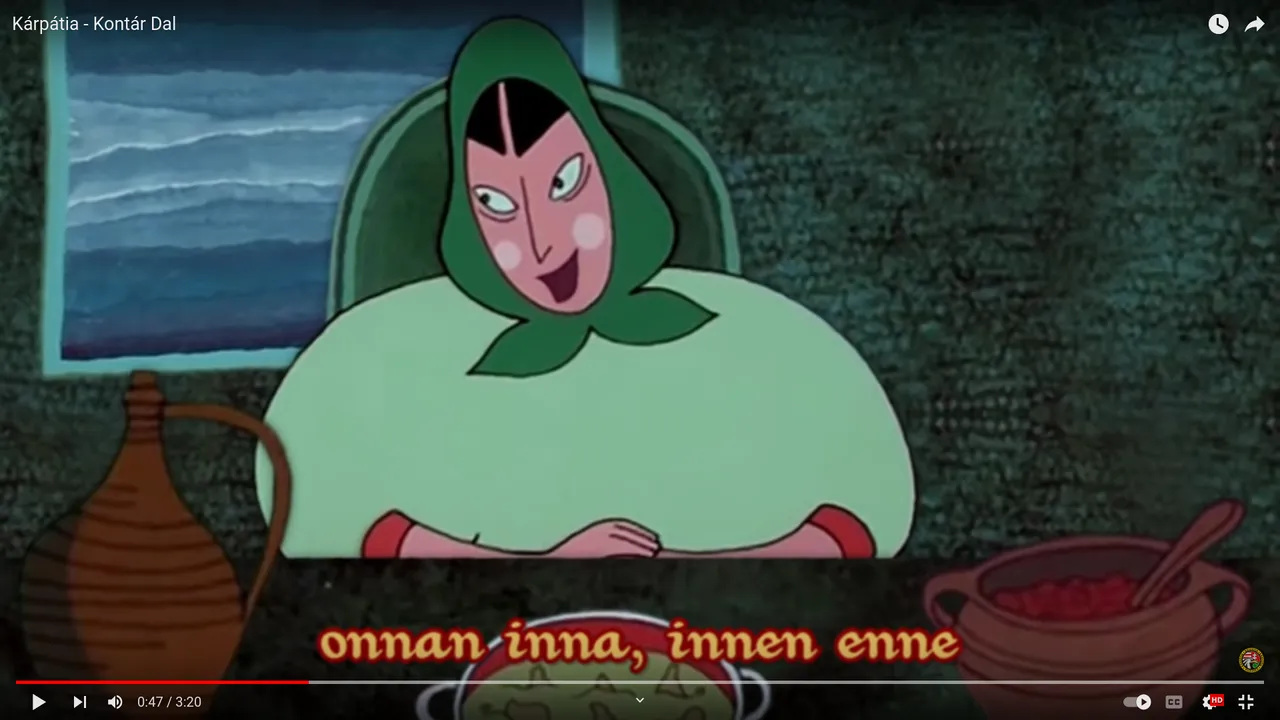
I know! This one is pretty impressive, right?
Ed's ideas of boobs are the lively boobs of Dia(Hungarian diminutive for Diana). Boobs here, boobs there, oh Dia is so giving. Do, do, do (no real meaning other than the sound), oh she is so giving.
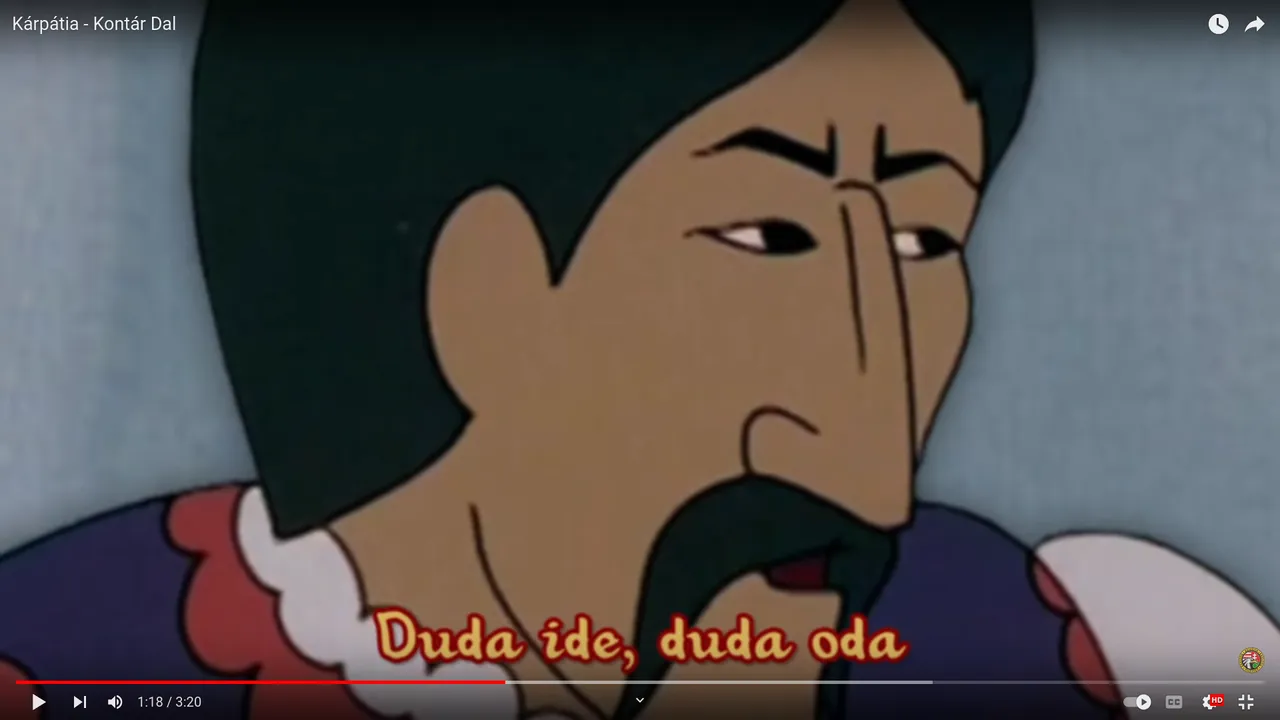
Not bad, but not as brilliant as the second verse.
Let's move on to my favorite one, though here I should note that the 's' sound is spelled 'sz' in Hungarian, but for the sake of readability I spelled the names with a 'ss' in my translation.
Sissi belongs to the Saxon Ossi. Ossi has grey hair, Sissi is blond. To Sissi belongs Ossi's mind, to Ossi belongs Sissi's fluff (literally). Ace, ace, ace, he is Ossi the Saxon.
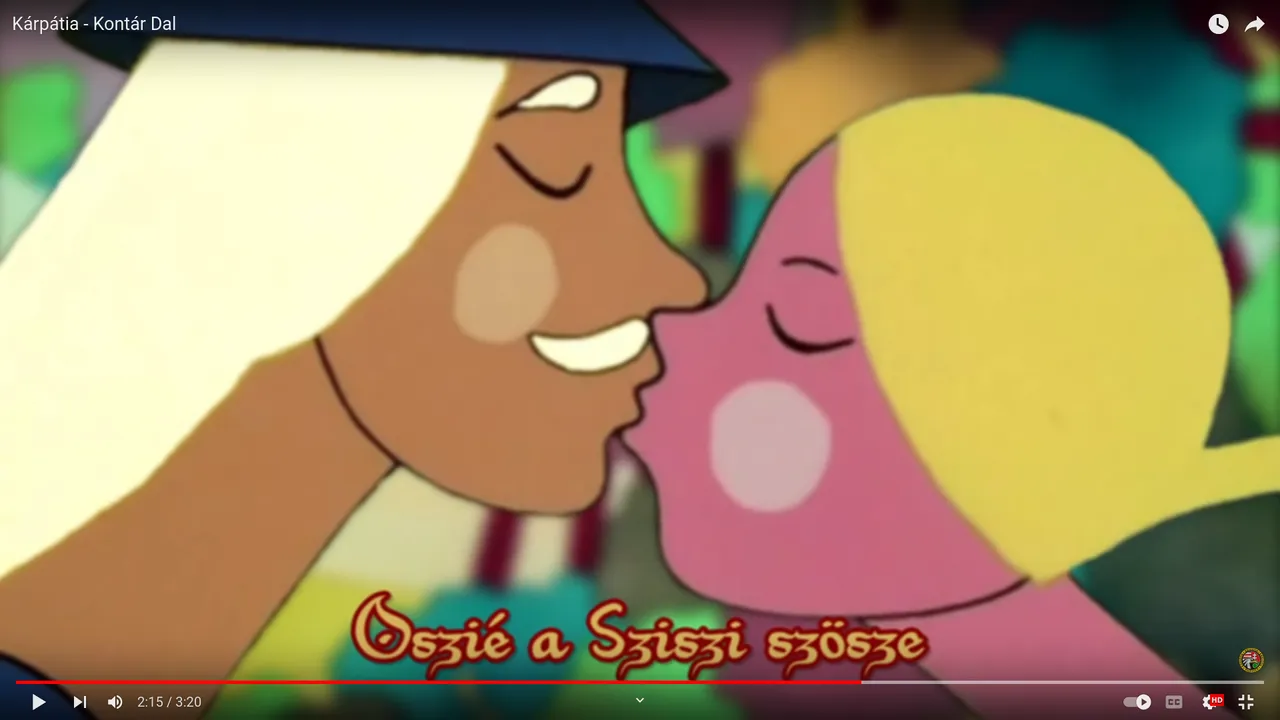
Hmmm... now in English it doesn't sound quite as good any more. What's noteworthy here, is the name Ossi, particularly for a Saxon, which coming from a German mindset is funny on its own. It is a term used often in a somewhat demeaning way for someone from Eastern Germany (such as Saxony).
Lilly is sitting, Lali (Hungarian diminutive for Louis) is standing. Lilly is hugging him below. He is being hugged by Lilly below, the standing lap of Lali is getting purple. He lives, he lives, he lives, Lali has an orgasm.
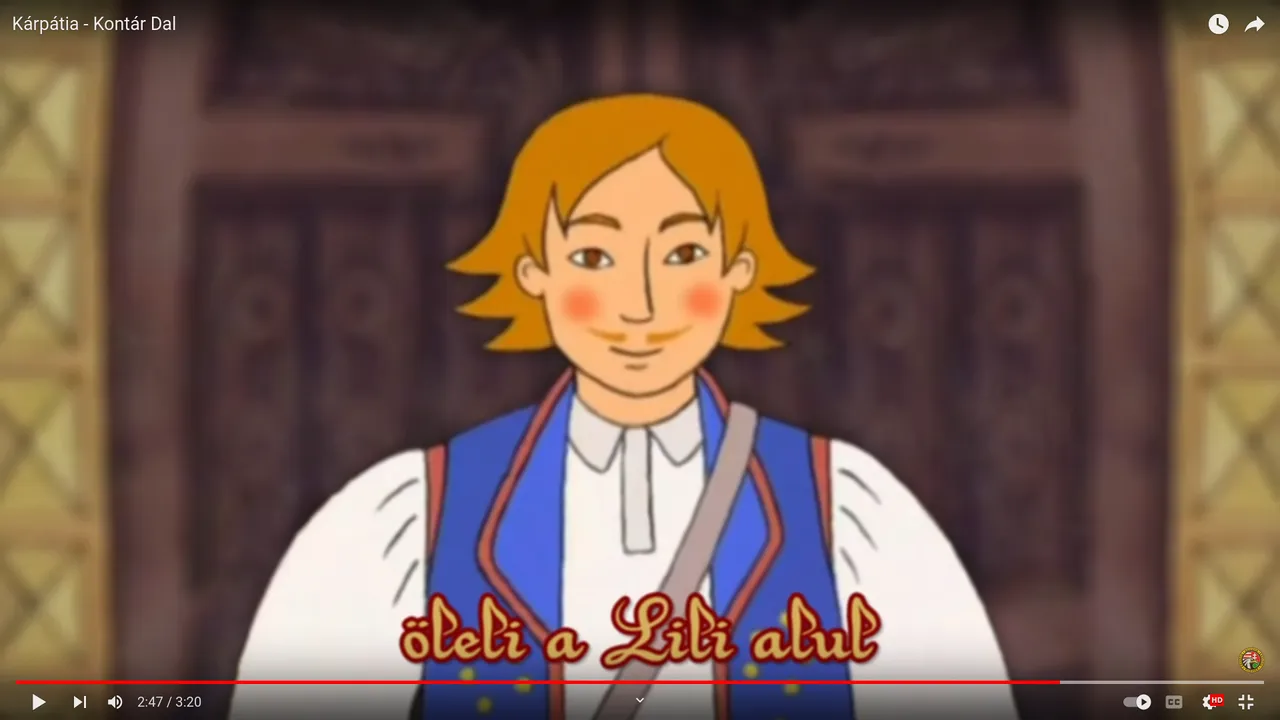
Sexy! And yes, that can be said about the song in general, since three of the five verses have somewhat sexual themes. Though from a mere linguistical perspective, this last verse is probably as interesting as the second one.
So, Is Hungarian Not That Big On Consonants?
Seeing all this weirdness you might think: Sure, it's easy to use just one consonant if there are 14 vowels in the language! And it does sound reasonable: where there's more, you just have more options. That's why I would like to mention a little game Hungarians like to play, which goes like this: You have to define a word or explain an idea using exclusively the vowel E. You read that right! Here's an example for the word Radio: "szerkezet, melyben kedves zene s szellemes csevej kellene legyen, de nem ez megy, mert serceg, recseg, s nyekereg". As you can see, the only vowel used here is the 'e'. So what does this definition mean in English? Something like this: "a machine which should have lovely music and humorous banter, but that's not what's happening, because it's sizzling, scratching, and whining." Wow... Now I'm even more impressed by my own language!
Imagery from Hungarian Folktales
A completely different feature that makes this song a piece of gem, are the images taken from the popular animated series Hungarian Folktales which I used to watch as a child. (By the way, they were also directed by Marcell Jankovics, just like the animation I posted about recently.) Of course all of these images were taken completely out of context, since I don't recall any sexual references whatsoever in that kid's show. Even the lady's boobs were shown exclusively in the context of breastfeeding her child. So here is another great props to Kárpátia for putting together the illustration to this song in such a way that it looks like it was made just for this purpose.
My Challenge To You All
After writing all this, I have been thinking about my mother tongue: Is Hungarian really the only language that can do this? I know, English, Spanish, and German can be excluded, that's for certain. But do any of you speak a language that is similarly versatile?
So I would be curious if anyone can provide me with one coherent sentence that only uses one consonant in any language in the world.
A Real Challenge to Win 5 HBD?
Why not? I happen to have a few HBD lying around, so I want to use that as a reward to anyone who can give me an example of a correct and coherent sentence that uses just one consonant, in any language, right here in a comment to this post.
And since it's official now, I'll have to verify it: So please also add the language, and the meaning of the phrase, so I can check it with a translator app.
I really want to know how many other languages are out there that have this flexibility, so I'm going to reward the first sentence I get from EACH language I get with 5 HBD, as long as it meets the given requirements. The deadline will be the same as this post's payout.
Oh, and since I really want as many people to see this as possible, everyone who re-blogs this post gets a PIZZA from me (maybe not on the same day, but within the next couple days for sure).
All right! Let me see what you can come up with! I'm quite excited!
